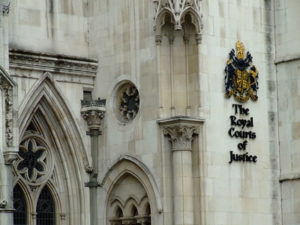Monitoring the myths around Rape

The Crown Prosecution Service recently produced new guidance for prosecutors considering rape charges. The new guidance was said to help tackle ‘rape myths and stereotypes’.
How much of an issue are rape myths?
According to the media there are issues with rape trials and jurors (people in the jury) do not like to convict defendants accused of rape.
There have been requests for jury trials in rape cases to be abolished amidst suggestions that jurors were biased against complainants based on their belief of these myths.
A petition in Parliament in 2018 called for jurors in rape trials to undertake compulsory training on rape myths;
- There was no cited research to back up the claims that “jurors accept commonly held rape myths” and “thus acquit rapists who are in fact guilty”.
- The petition went on to claim that the conviction rate for rape was 21% lower than other crimes and that 66% of jurors did not understand the judge’s legal directions which attempted to dispel rape myths.
- The claims did not come from actual research with juries but appear to have been based on opinion polls and anecdotal evidence from those involved in the system.
In direct contradiction to the claims in the petition, there is detailed research which had shown that a jury was more likely to convict in a rape trial than acquit.
The research also showed that the conviction rate was higher for rape than it was for other serious offences such as causing grievous bodily harm and attempted murder.
What guidance is given?
- Judges provide directions to juries about rape myths and have done so for some time.
- Judges in the Crown Court are provided with a book containing detailed guidance on dealing with directions to juries.
- The book, known as the Crown Court Compendium, deals with issues such as previous relationship/contact between the complainant and defendant, sexual experience of the defendant, inconsistent accounts, emotion on giving evidence, intoxication and clothing.
- A judge can give such directions at any stage of the trial he considers appropriate.
What actual research has been done?
In 2018-2019 the UCL Jury Project carried out research with real juries.
The Two key questions were:
- Should Judges provide any additional guidance?
- Do actual jurors did believe in rape myths and stereotypes?
The jurors were asked about common rape myths such as bruises or marks being needed, that a person had to fight back, and wearing provocative clothing. The vast majority did not believe them. For the most part, those who did amounted to less than one person on a jury.
One of the issues where the jurors were unsure, was stranger rape versus acquaintance rape.
Most rapes are committed by someone known to the victim, but 31% of jurors were unsure which was more common.
A second issue was in respect of the emotions of a complainant giving evidence. The amount of emotion shown can vary widely;
- Nearly half of jurors thought a complainant would be very emotional
- 22% believed the opposite
- 35% were uncertain.
There was a great deal of uncertainty with jurors about questions relating to;
Whether the police often don’t believe victims;
Whether some people make up allegations about famous people;
Whether it is hard to know if rape occurred if both parties were drunk;
Whether some women said they were raped when they had regretted consensual sex.
How does the research compare to the petition?
The research demonstrates that jurors accept commonly held rape myths is incorrect, as is, the claim of widespread juror bias.
There appears to be a difference between the answers of real jurors and those from mock jurors or opinion polls. It suggests that the experience of real jurors cannot be replicated.
The research by the UCL Jury Project involved 1175 jurors out of a possible 1177; the project says this means it presents a reliable source of information.
What should be done?
The research with real jurors show that additional guidance in these areas above would be beneficial. The UCL Jury Project is to continue with its research in order to determine the best way to direct juries on these issues.
The reason for the research is to see if there are new tools which could help reduce the number of jurors who were uncertain about these issues, and those who hold incorrect beliefs.